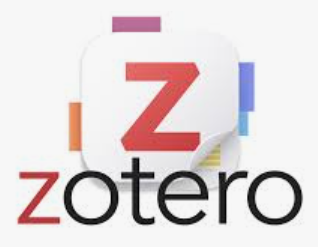PENGARUH PENGGUNAAN TEKNOLOGI AUGMENTED REALITY TERHADAP KEMAMPUAN BERPIKIR KRITIS SISWA PADA MATERI PERKEMBANGBIAKAN MAKHLUK HIDUP
DOI:
https://doi.org/10.46368/bjpd.v1i1.3103Abstract
Abstract
Augmented Reality (AR) technology can enhance learning by visualizing abstract concepts, such as complex science materials, and enriching students' learning experiences. At UPTD SD Negeri 27 Peusangan, the application of AR is expected to help students understand the reproduction of living things interactively and interestingly, considering the low critical thinking skills in conventional learning. Experimental research with the One Group Pretest-Posttest design showed that the use of AR improved students' critical thinking skills, with an increase percentage of 64.9%. The results of the study conducted at SD Negeri 27 Peusangan, the use of Augmented Reality technology in learning the reproduction of living things material showed quite good results. This can be seen from the pretest and posttest data which showed students' enthusiasm in learning and an increase in critical thinking skills in each indicator. In addition, it was also found that the use of Augmented Reality technology has an influence on increasing critical thinking skills with a percentage of 64.9%. This study involved 13 grade students.
Â
Keywords: augmented reality, critical thinking, reproduction of living things
References
Cheng, Kai-Hsin, dan Chin-Chung Tsai. 2019. “A Case Study of Augmented Reality in a Science Curriculum: Students’ Perceptions and Learning Experience.†Journal of Science Education and Technology 28(1):27–39. doi: 10.1007/s10956-018-9754-6.
Ghozali, Imam. 2021. Aplikasi Analisis Multivariate dengan Program IBM SPSS 26. Edisi 10. Jawa Tengah: Badan Penerbit Universitas Diponegori.
Hidayat, Aziz Alimul. 2021. Menyusun Instrumen Penelitian & Uji Validitas-Reliabilitas. Surabaya: Health Books Publishing.
Jaya, I. Made Laut Mertha. 2020. Metode Penelitian Kuantitatif dan Kualitatif. Yogyakarta: Anak Hebat Indonesia.
Mota, Pedro, Joana Torres, Catarina Silva, dan Ricardo Rodrigues. 2021. “Augmented Reality Technology: Enhancing Learning for Children with Special Needs.†Education and Information Technologies 26(4):5077–91. doi: 10.1007/s10639-021-10529-8.
Murat, Akçayır, dan Akçayı Gökçe. 2017. “Advantages and Challenges Associated With Augmented Reality for Education: A Systematic Review of the Literature.†Educational Research Review 20(1):1–11.
Nugroho, Eko. 2018. Prinsip-Prinsip Menyusun Kuesioner. Malang: Universitas Brawijaya Press.
Payadnya, I. Putu Ade Andre, dan I. Gusti Agung Ngurah Trisna Jayantika. 2018. Panduan Penelitian Eksperimen Beserta Analitsis Statistik dengan SPSS. Yogyakarta: Deepublish.
Prijowuntato, Sebastianus Widanarto. 2020. Evaluasi Pembelajaran. Yogyakarta: Sanata Dharma University Press.
Sugiyono. 2021. Metode Penelitian Kuantitatif, Kualitatif, dan R&D. 3 ed. Bandung: Alfabeta.
Wu, Hsin-Kai, Shu Wen Y. Lee, Hsin-Yi Chang, dan Jyh-Chong Liang. 2020. “Current Status, Opportunities, and Challenges of Augmented Reality in Education.†Computers & Education 62:41–49. doi: 10.1016/j.compedu.2012.10.024.






